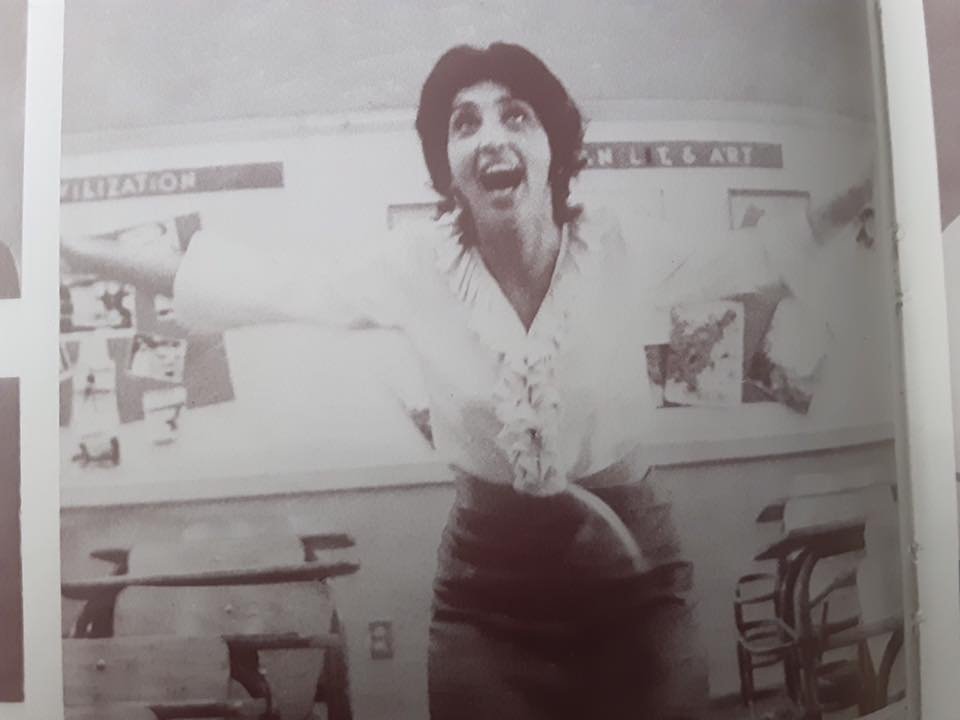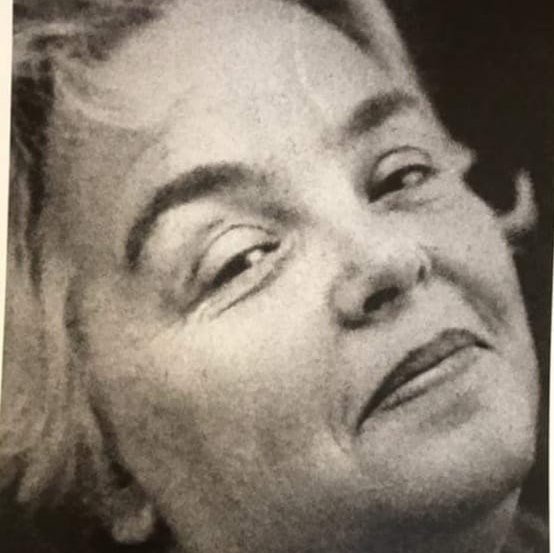Non-Family Ancestors
I enjoy thinking of "ancestors" as a word that includes both family and non-family. Of course my parents, grandparents, etc. are my ancestors, and they definitely influenced me. But I place a high value on contributions made by people outside my family, such as teachers, neighbors, and my parents’ friends.
My non-family ancestors were not perfect people. They were simply people in my parents’ generation whose examples awakened something in me, something I later adopted as my own. They probably didn’t even know how much they were affecting me. They were just busy doing their thing. But I was watching and absorbing.
Here are some of my non-family ancestors.
My 8th grade English teacher Dorothy Meghreblian
At 13, I was a mess. At 45, Mrs. Meghreblian was on fire. She used everything she had every day to ignite in us a passion for the written word, and often succeeded. She was the first person other than my parents who noticed my writing. I will never forget how I felt when she read my short story aloud to the whole class. She made me feel seen and valued at a time when I really needed that. From Mrs. Meghreblian I got the message that writing matters, and that the passionate, sincere belief behind what you are writing matters even more. (Dorothy is still alive in her 90s and I am still in touch with her!)
My godfather Tom DeVito, in his Fire Island kitchen
In my childhood, I spent every summer on Fire Island, NY, an unpretentious beach paradise where my father had a cottage. While there, I spent loads of time in my godparents’ Tom and Sue DeVito’s house, watching Tom cook. The way his hands handled each ingredient, with full attention to sensation, was memorable. “Here, squeeze this: that's what a perfect peach feels like…Hear that? That’s exactly how the sizzle should sound…See how the bubbles look now? That's what you want.” The way he used all five senses to interact with the food made his kitchen a laboratory of sensory learning. Much later I learned that Tom suffered from severe depression, and the kitchen may have been the only place where he felt good about himself. Back then, of course, I had no idea. (RIP Tom DeVito.)
Acting teacher and author Eric Morris
I was never an actor, but my mother Joan Hotchkis was, and Eric Morris was her main teacher and collaborator. In the 70's, she helped him write his first book (No Acting Please), and he helped her write her first play (“Legacy”). Consequently, Eric was at our house many hours every week. I wasn’t involved, but I was listening. I absorbed his teachings about using your real feelings in a role, activating sense memory to remember how an experience felt, and how important it is to address your own psychological issues in order to remove obstacles and become a better actor (or just a better person). Listening to them shaped my world view. I got the message that working on your issues is the most important thing you can possibly do. I've been doing it for my entire life (am I done yet? LOL) and now help others do it through my movement teaching. I later learned that Eric only thought he needed my mother’s help because he had low self-esteem as a writer and didn’t believe he could write a book. Since then, he has written fourteen books. (Eric is not only still alive but STILL TEACHING (!) in his 90s, and I am still in touch with him!)
Friend Marcia Mirkin
In junior high, I spent a lot of time at my friend Judy Mirkin’s house. Judy’s mom was a remarkable woman named Marcia. Marcia welcomed me, accepted me, and consistently helped me believe in myself. To her, “can’t” was a dirty word. As an adult, I learned more about why. Marcia had originally wanted to be a lawyer, but was told “you can’t.” She did what she was told to do (marry, have children) and had a good life, but never forgot the sting of being told she couldn’t. And that is why she spent the rest of her life insisting to others, including me, that they CAN. Marcia was a beacon of can-do spirit. By helping others believe in themselves, she modeled a kind of fierce advocacy that at times I have wielded with others. (RIP Marcia.)
These and other inspiring people in my life had strengths that helped them persist and prevail. Witnessing their strengths in action allowed me to absorb them and make them my own. My passion for teaching has made me a better teacher. My love of cooking and hosting has allowed me to convene many beautiful, meaningful events in my home. My belief in inner work has helped me make progress on myself, which in turn helps me enjoy life more and be less of a drain on others. And fiercely advocating for people to believe in themselves, has helped me feel like I make a difference.
Taking inventory of your ancestors’ strengths can help you take a more strengths-based approach to life, which makes you more resilient!
Who are your ancestors? What strengths helped them overcome their challenges? Can you make those strengths your own?
A few minutes of reflection on those questions will be great preparation for a special online class this Saturday October 14, 9-10am CA time, called “Take Strength from Your Ancestors.”



